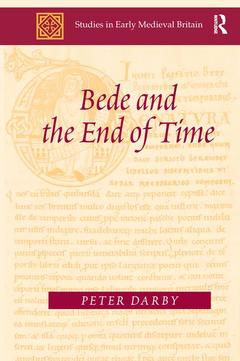Bede and the End of Time
Auteur : Darby Peter

Date de parution : 11-2016
15.6x23.4 cm
Thèmes de Bede and the End of Time :
Mots-clés :
Primam Partem Samuhelis; primam; Expositio Apocalypseos; partem; Historia Ecclesiastica; samuhelis; Epistulas Septem Catholicas; epistulas; De Temporibus; septem; Lucae Evangelium Expositio; catholicas; Expositio Actuum Apostolorum; bedes; De Tabernaculo; commentary; Bede’s Commentary; expositio; Historia Ecclesiastica Gentis Anglorum; apocalypseos; World Ages; De Natura Rerum; Chronica Minora; Vita Wilfridi; Historia Abbatum; De Templo; Epistola Ad Ecgbertum; Annus Mundi; De Orthographia; Registrum Epistularum; Eighth Age; Chronici Canones; Epistola Ad; De Civitate Dei; Seventh Age



